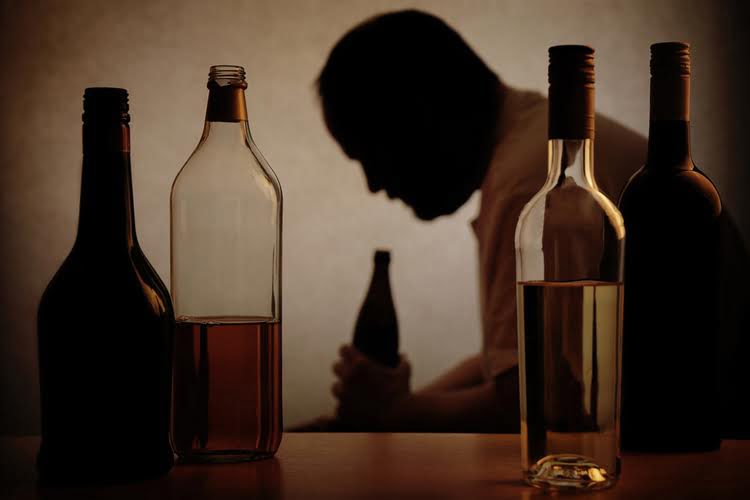Inpatient Rehab Near Me Find the Best Addiction Treatment Facility Near You
Outpatient programs may have a total cost of less than $1,000, even if you do not have insurance. Inpatient drug rehab offers a structured, supportive, and immersive space for those struggling with addiction. They offer people information about addiction, its effects on the brain and body, and the recovery process. Inpatient drug rehab involves several structured components to ensure a holistic approach to recovery.
- These resources include aftercare planning, alumni programs, and community-based services aimed at promoting continued sobriety.
- When choosing an inpatient rehab program do not assume that all programs are the same.
- Group therapy sessions are also commonly included to provide peer support and foster a sense of community among participants.
Conditions treated with inpatient rehabilitation
- We list any treatment center that meets our rehab criteria, giving you the best list of options possible when looking for treatment.
- The time frame depends on the drug of abuse, the amount used, how long it was abused for and many other personal factors.
- Inpatient drug rehab lasts 30, 60, or 90 days, though some programs extend beyond 90 days for severe cases.
The treatment approach is typically tailored to address the unique circumstances and goals of each individual to support their journey toward lasting recovery. The controlled and supportive environment of inpatient rehab significantly reduces the risk of relapse. The Recovery Village Kansas inpatient vs outpatient rehab City offers comprehensive addiction treatment for drug and alcohol addictions and co-occurring mental health conditions. Many inpatient rehab programs, including The Recovery Village Kansas City, accept health insurance.
- Always seek treatment from experienced and licensed experts in the field of addiction and mental health.
- These activities contribute to holistic healing by addressing the physical, emotional, and mental aspects of recovery.
- Talk to your doctor about the type of rehabilitation that may be right for you.
- Openly communicating about your need for treatment and your commitment to recovery can help in finding a solution that works for both parties.
Choosing the Right Inpatient Rehabilitation Program
Outpatient treatment centers usually conduct IOP at night or in the early morning to help those in the program maintain their normal schedules outside of treatment. Unlike residential detox, patients must visit a hospital or other treatment facility for physical and mental check-ups during outpatient detox. Clinicians or doctors might administer medications on-site to soothe withdrawal symptoms like anxiety, depression, and increased heart rate. At CeDAR we believe that active addiction is best treated in an inpatient setting. Engaging in a residential addiction treatment program offers people the time, space, and resources they need to heal.

What is the Difference Between Inpatient Rehab and Outpatient Rehab?
Residential treatments last a month or more and more closely resemble a home-like setting while permitting more freedoms. Alternatively, inpatient services are frequently in acute care hospitals under constant monitoring and observation. At The Recovery Village, inpatient treatment includes both intensive around-the-clock care and residential care. Moreover, the intensive nature of inpatient programs allows for a more focused and all-encompassing approach to therapy. Patients have access to various therapeutic interventions, including individual counselling, group therapy, medication management, and comprehensive treatments. This multifaceted approach addresses multiple aspects of the individual’s well-being, enhancing the effectiveness of the treatment.
Evidence Based
Inpatient rehab programs vary in length, typically ranging from 30 to 90 days or longer, depending on the individual’s needs and progress. The goal of inpatient rehab is to provide a safe and structured setting for individuals to focus on their recovery without distractions from the outside world. Consider the severity of the addiction, history of relapse, co-occurring disorders, environment conducive to recovery, and level of support available. Consulting with a healthcare professional can help determine the most suitable treatment option based on the patient’s situation and information.

In general, shorter programs are more intensive, focusing on detoxification and stabilization. Longer stays allow for a more profound exploration of the addiction and related issues, providing a comprehensive healing environment. However, regardless of the duration, https://salessy.ai/alcohol-and-aging-skin-how-to-restore-your-glow/ the ultimate aim is to equip patients with the tools they need for long-term recovery.
If you or someone you love is struggling with addiction, getting help is just a phone call away, or consider trying therapy online with BetterHelp. After you are checked in, you will often be allowed to contact loved ones to let them know you’ve arrived safely and will be receiving treatment. Family owned and operated since 2014, Infinite Recovery was founded by Michael & Ylianna Dadashi to give those struggling with addiction a second chance and help to rebuild their lives. Clean and sober since 2009, Michael is passionate about helping others discover their authentic self and live a life of true freedom and purpose. These coping strategies are essential for maintaining sobriety and leading a balanced, fulfilling life post-rehab.

The family dynamic can play an enormous role in an addict’s well-being, and sometimes, working through family issues can contribute to the addict’s healing and overall success. Our hospital has been accredited by The Joint Commission for Disease-Specific Care Certification in Diabetes Treatment. Our Stroke Specialty Program is recognized by CIHQ as a Center of Excellence and certified by The Commission on Accreditation of Rehabilitation Facilities (CARF).
Addiction Treatment Programs
Individual therapy gives you personalized support to address the issues behind your addiction, while group therapy builds a sense of community and lets you learn from others’ experiences. Both one-on-one Sober living house and group therapy sessions are important parts of the program. A therapist facilitates these sessions, which focus on topics like relapse prevention, stress management, and building healthy relationships.
